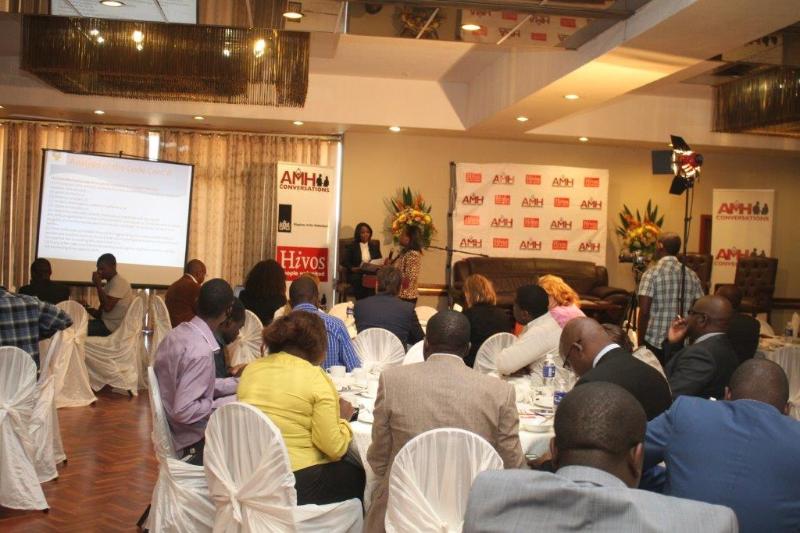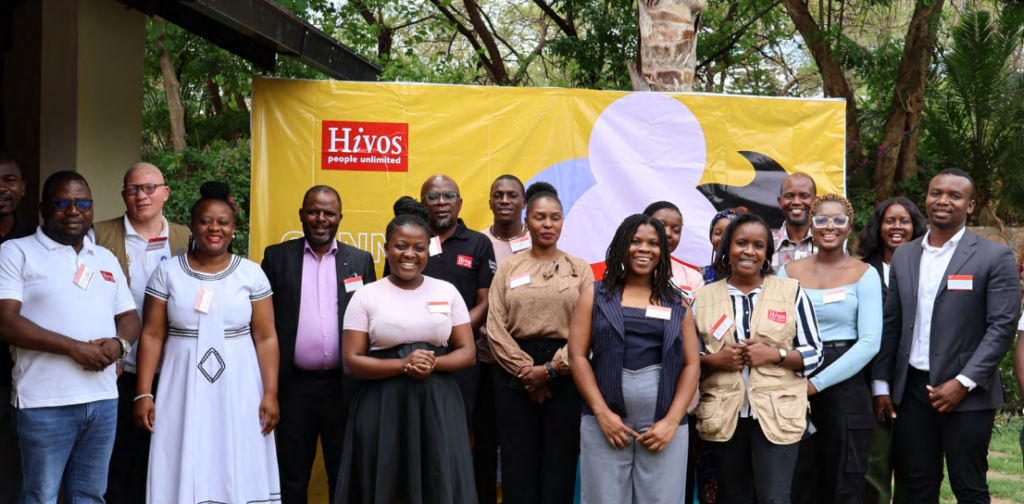Hivos Southern Africa Hub has been providing support to Alpha Media Holdings, a leading newspaper publisher in Zimbabwe, to conduct dialogues on critical issues facing Zimbabwe. Funding for the conversations is provided by the Embassy of Kingdom of Netherlands (EKN) under the Human Rights Fund (HRF).
Hivos Southern Africa in partnership with Alpha Media Holdings (AMH) recently held a public discussion to interrogate the cybercrime bill that is being tabled by the Zimbabwe government. Hivos Southern Africa Hub has been providing support to Alpha Media Holdings, a leading newspaper publisher in Zimbabwe, to conduct dialogues on critical issues facing Zimbabwe. Funding for the conversations is provided by the Embassy of Kingdom of Netherlands (EKN) under the Human Rights Fund (HRF).
The conversation brought together lawyers, human rights activists and ICT professionals to interrogate the proposed bill, especially through the critical lens of cyber activism versus cyber terrorism, social media regulations and the role of social media in politics and freedom of expression.
Following a spate of social media fuelled street protests, the Government of Zimbabwe is planning to introduce a raft of laws to clamp down on social media. According to Zimbabwe’s state media reports, the draft laws seek to penalise the “abusive” usage of social media with five-year jail terms. The draft laws also allow the seizure of smartphones and laptops under the guise of maintaining cyberspace law and order.
According to ICT minister Supa Mandiwanzira, the government is already in the process of drawing up legal and policy instruments to regulate and control information communication technologies.
A report in the state-run Sunday Mail said this legislation, called the ‘Computer Crime and Cyber Crime Bill’, together with two supporting bills on information technology, is meant to “manage” cyber space, which has “for long been abused to foment social disobedience and attack private citizens”.
According to the preamble of the Bill, it “seeks to criminalise offences against computers and communications infrastructure networks related crimes; to consolidate the criminal law on computer crime and network crime; to provide for investigation and collection of evidence for computer and network related crime; to provide for the admission of electronic evidence for such offences, and to provide for matters connected with or incidental to the foregoing.”
The draft legislation states that any person, whether staying either in Zimbabwe or overseas, shall be held guilty if found “intentionally generating, possessing and distributing an electronic communication with the intent to coerce, intimidate, harass, threaten, bully or cause emotional distress to another person”.
However, many analysts at the AMH dialogue session feel that the legislation is being enacted to stem dissent following the job boycotts and protests that have rocked the country. These have been coordinated mainly through social media, notably WhatsApp, YouTube and Facebook, mobilising thousands of followers to take action and to vent their frustration with over a failing economy and alleged rampant corruption.
Discussants felt that following a spike in anti-government protests co-ordinated via social media, the State hastily cobbled together the Cyber Bill to curb what it terms “abuse of social media”. It was generally noted that the move could significantly muzzle freedom of expression.
For Hivos, freedom of expression is not a means to achieve its ideals, but an end in itself. An open Internet, independent media and space for art are necessary to fight for and protect freedoms in any society, anywhere in the world.




